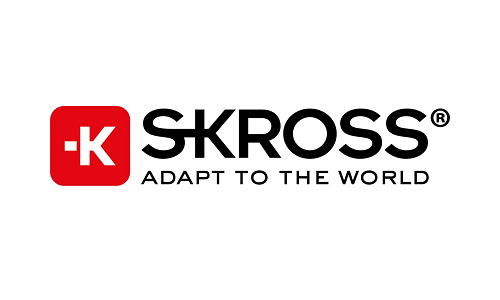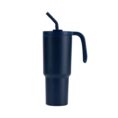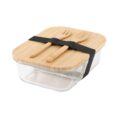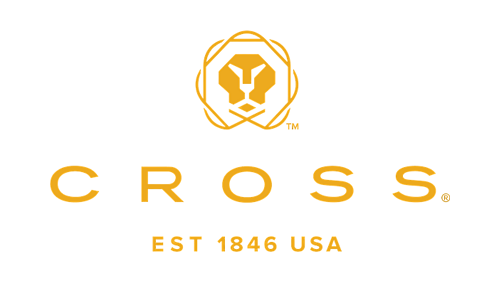Jute & Tote Bags: Sustainable and Stylish Solutions for Eco-Conscious Consumers

The world is waking up to the urgency of environmental responsibility. Consumers are becoming increasingly eco-conscious, making sustainable choices a priority in their everyday lives. This growing environmental consciousness goes beyond the act of recycling and focuses on choosing products that prioritize the well-being of our planet.
One area where this trend is evident is in the realm of shopping bags. Tote bags are emerging as a stylish and sustainable alternative to traditional bags. Jute Bags are eco-friendly alternatives not only fulfill practical needs but also contribute to a greener and more sustainable future.
But what exactly is jute and tote and why is it such a great eco-friendly material? Let’s Explore….
Understanding Jute
- Biodegradability: Jute is a natural fiber that is biodegradable, meaning it can decompose naturally without leaving harmful residues in the environment.
- Renewability: Jute is derived from the jute plant, which is a fast-growing crop that can be harvested within four to six months. This rapid growth rate makes jute a highly renewable resource compared to other fibers.
- Minimal Chemical Processing: Jute requires minimal chemical processing during cultivation and manufacturing. This reduces the use of harmful chemicals and lowers the environmental impact of jute production.
- Low Water and Pesticide Usage: Jute cultivation typically requires less water and pesticides compared to other crops like cotton. This makes jute a more sustainable option, especially in regions facing water scarcity or where pesticide use is a concern.
- Carbon Footprint: Jute production has a lower carbon footprint compared to synthetic fibers like polyester or nylon. The cultivation and processing of jute involve fewer energy-intensive processes and emit fewer greenhouse gasses, contributing to mitigating climate change.
Jute vs. Other Used Fibers
Synthetic Fibers (Polyester, Nylon): Jute is a natural fiber derived from plants, whereas synthetic fibers like polyester and nylon are derived from non-renewable fossil fuels. Jute is biodegradable and produces fewer microplastics compared to synthetic fibers, which contribute to plastic pollution in the environment.
Environmental Impact: Jute cultivation and processing have a lower environmental impact compared to synthetic fibers. Jute production involves fewer energy-intensive processes, emits fewer greenhouse gases, and generates less pollution, making it a more eco-friendly choice for sustainable manufacturing.
The Versatility of Tote Bags
Practical Uses of Tote Bags in Everyday Life:
- Grocery Shopping: Tote bags are ideal for carrying groceries from the store to home. Their sturdy construction and ample space make them suitable for holding various items, including fruits, vegetables, canned goods, and packaged products.
- Beach Trips: Tote bags are convenient for packing essentials for a day at the beach. They can hold towels, sunscreen, snacks, water bottles, and beach toys, making them essential accessories for beachgoers.
- Work and School: Tote bags serve as practical accessories for carrying work or school essentials, such as laptops, notebooks, textbooks, pens, and other stationery items. Their spacious compartments and durable handles make them suitable for everyday use.
- Gym and Fitness: Tote bags are popular among fitness enthusiasts for carrying workout clothes, sneakers, water bottles, towels, and other gym essentials. Their lightweight design and versatility make them convenient for trips to the gym or outdoor workouts.
- Travel and Errands: Tote bags are versatile travel companions for carrying travel documents, snacks, entertainment items, and personal belongings during trips. They can also be used for running errands, such as shopping for household items or visiting local markets.
The Rise of Jute Tote Bags
Introduction to Jute and Tote Bags as a Sustainable Alternative:
- Eco-Friendly Material: Jute tote bags are gaining popularity as a sustainable alternative to traditional plastic or synthetic bags. Made from natural jute fibers, these bags are biodegradable, renewable, and eco-friendly, making them a preferred choice for environmentally conscious consumers.
- Reduction of Plastic Waste: Jute bags help reduce the consumption of single-use plastic bags, which are a major contributor to environmental pollution. By opting for reusable jute tote bags, consumers can minimize their carbon footprint and contribute to efforts to reduce plastic waste in landfills and oceans.
- Durable and Long-Lasting: Jute tote bags are known for their durability and longevity. Unlike flimsy plastic bags that often tear or break easily, jute tote bags are sturdy and can withstand heavy loads, making them suitable for repeated use over an extended period.
Stylish Designs and Trends in Jute Tote Bags:
- Natural Aesthetic: Jute tote bags often feature a natural and rustic aesthetic, with earthy tones and textures that showcase the beauty of the jute fiber. This minimalist and organic look has become increasingly popular among consumers seeking eco-friendly and sustainable options.
- Customization Options: Many jute tote bags offer customization options, allowing consumers to personalize their bags with unique designs, patterns, or logos. This customization adds a personal touch to the bags and makes them ideal for promotional purposes or special events.
Consumer Demand for Eco-Friendly and Fashionable Bags:
- Growing Awareness: With increasing awareness about environmental issues and sustainability, there is a growing demand for eco-friendly products, including bags. Consumers are seeking alternatives to traditional bags and are actively choosing reusable and sustainable options like jute tote bags.
- Preference for Fashionable Choices: While sustainability is a key factor driving the popularity of jute tote bags, consumers also prioritize style and aesthetics when making purchasing decisions. As a result, there is a rising demand for jute tote bags that combine eco-friendliness with designs and trends.
Advantages of Jute and Tote Bags:
- Reusable: Tote bags are reusable, unlike single-use plastic bags, which are typically discarded after a single use. This reduces the consumption of disposable plastic and helps minimize plastic waste in the environment.
- Durable: Tote bags are made from sturdy materials like canvas, cotton, or jute, making them durable and long-lasting. They can withstand heavy loads and repeated use without tearing or breaking, unlike flimsy plastic bags that often rip easily.
- Environmentally Friendly: Tote bags have a lower environmental impact compared to single-use bags. By using tote bags instead of plastic bags, consumers can help reduce plastic pollution, conserve natural resources, and minimize harm to wildlife and ecosystems.
- Versatile: Tote bags are versatile accessories that can be used for various purposes, including shopping, traveling, commuting, and organizing belongings. Their spacious design and multiple compartments make them suitable for a wide range of activities and lifestyles.
- Fashionable: Tote bags come in a variety of styles, colors, and designs, allowing consumers to express their personal style while making eco-friendly choices. From classic canvas totes to trendy jute bags, there’s a tote bag to suit every taste and preference.
Innovations in the Sustainable Corporate Gifts Industry:
- Customization and Personalization: Companies are increasingly offering customizable and personalized sustainable corporate gifts to clients, employees, and stakeholders. This allows businesses to align their gift-giving practices with their values and create meaningful connections with recipients.
- Tech-Integrated Gifts: With the rise of technology, sustainable corporate gifts are incorporating innovative features such as eco-friendly electronics, and energy-efficient devices. These tech-integrated gifts not only promote sustainability but also showcase the latest advancements in green technology.
- Green Packaging Solutions: Sustainable corporate gifts are being packaged in environmentally friendly materials such as recycled paper, biodegradable packaging, and compostable materials. Companies are opting for minimalist and eco-conscious packaging designs that reduce waste and promote sustainable consumption.
- Experience-Based Gifts: Instead of traditional physical gifts, companies are offering experience-based gifts such as eco-friendly workshops, outdoor adventures, sustainable travel packages, and wellness retreats. These gifts prioritize memorable experiences over material possessions and promote eco-conscious living.
Examples of innovative jute and tote bag designs
Adoption of Eco-Friendly Materials in the Sustainable Corporate Gifts Industry:
- Recycled Materials:
- Sustainable corporate gifts are increasingly being made from recycled materials such as recycled paper, cardboard, glass, plastic, and metal.
- Biodegradable Materials:
- Companies are opting for biodegradable materials such as bamboo, jute, hemp, cork, and organic cotton in their sustainable corporate gifts.
- Sustainably Sourced Wood:
- Wooden corporate gifts sourced from responsibly managed forests and certified sustainable sources are gaining popularity. Companies are choosing wooden products such as bamboo pens, wooden USB drives, and bamboo desk organizers as eco-friendly alternatives to traditional plastic gifts.
- Plant-Based Materials:
- Plant-based materials such as plant-based plastics (PLA), cornstarch-based bioplastics, and sugarcane-derived materials are being used in sustainable corporate gifts. These renewable and compostable materials offer a greener alternative to conventional petroleum-based plastics and reduce dependence on fossil fuels.
Impact of Sustainability on Consumer Behavior and Industry Practices:
- Consumer Preferences: The growing awareness of environmental issues is influencing consumer preferences, with more individuals seeking sustainable products and brands. This shift is driving businesses to prioritize sustainability in their offerings to meet consumer demand.
- Supply Chain Transparency: Consumers are demanding greater transparency in supply chains, leading companies to adopt sustainable and ethical practices throughout their production processes. This includes responsibly sourcing materials, minimizing waste, and ensuring fair labor practices.
- Innovation and Product Development: Sustainability is driving innovation in product development, with companies investing in eco-friendly materials, renewable energy, and circular economy initiatives. This has led to the creation of innovative sustainable products that appeal to environmentally conscious consumers.
- Regulatory Compliance: Governments are implementing regulations and policies to promote sustainability and reduce environmental impact. Companies must comply with these regulations, leading to changes in industry practices and greater accountability for environmental stewardship.
- Brand Reputation and Loyalty: Companies that prioritize sustainability can enhance their brand reputation and build customer loyalty. Consumers are more likely to support brands that align with their values, leading to long-term relationships and positive word-of-mouth advertising.
- Cost Savings and Efficiency: Adopting sustainable practices can lead to cost savings and increased efficiency for businesses. This includes reducing energy consumption, optimizing resource use, and minimizing waste generation, resulting in improved profitability and competitiveness.
Explore why jute and tote bags are the ultimate eco-friendly choice. Discover their environmental benefits, practical uses, and why they’re becoming the go-to option for sustainable living.























































Heard about jili88phcomapp? Gave it a try, and it’s alright! The app runs smoothly, which is a huge plus. If you’re looking for convenience, this might be your spot. Learn more here: jili88phcomapp
K8ccbet, my dudes! They got a huge selection of games and the payouts are legit. Been having a blast here, definitely worth checkin’ out. k8ccbet